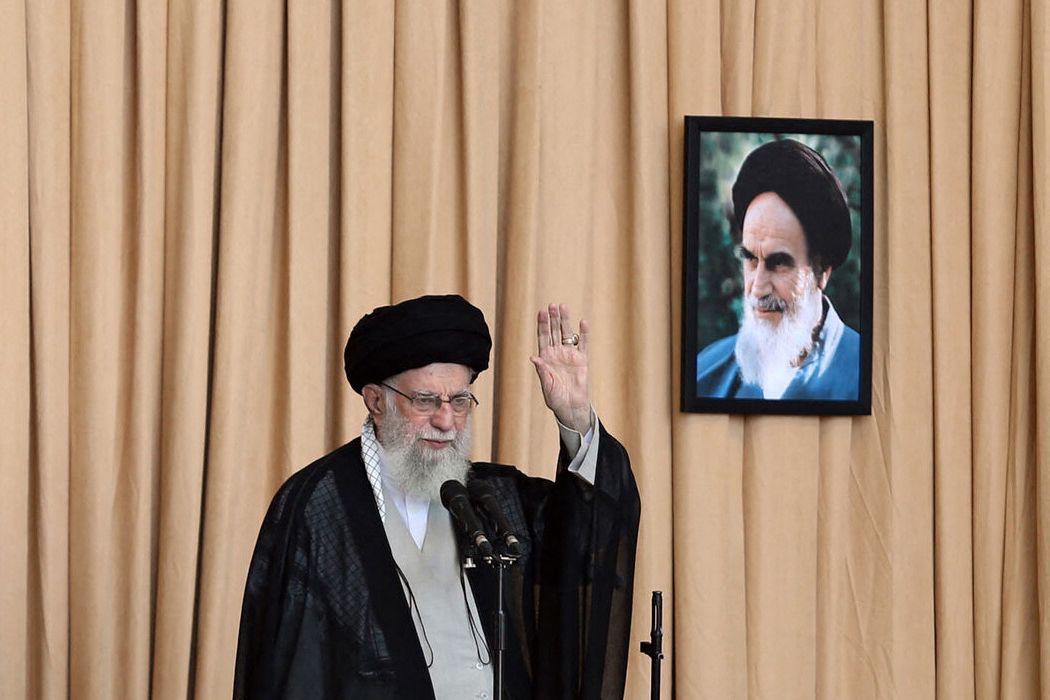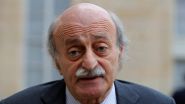
With each passing day, the assassination of Hezbollah’s powerful secretary general Hassan Nasrallah falls further into oblivion, overshadowed by the ongoing assassination of an entire nation—Lebanon—which has long been denied the fundamental conditions and rights that any country deserves. What matters now is that the Hezbollah, having lost its prominent leader, has entered a phase described by Iranian supreme leader Ali Khamenei in his recent speech: “the continuation of the fight.”
It has been 42 years since Israel launched a war to eliminate the Palestinian armed presence in Lebanon. This conflict, which unfolded in the summer of 1982, achieved its Israel’s objective. However, it also set the stage for the emergence of another armed group: Hezbollah. Today, Israel is initiating yet another war aimed at dismantling it. Will history repeat itself?
This question does not anticipate the unfolding events but highlights a significant aspect. Amidst the upheaval that has raged over the past two months, a glaring truth emerges about Hezbollah's identity: its Iranian character has been evident since its inception following the 1982 war. A review of extensive documentation confirms that this Iranian allegiance has been present for over four decades. Yet, the recent events, culminating in the assassination of Hezbollah's Secretary-General Hassan Nasrallah, have further unveiled the group’s Iranian identity. As a metaphor, we often use the phrase “Lebanese for over 10 years” to affirm a citizen's identity. Similarly, we can say “Iranian for over 40 years” to assert Hezbollah's identity.
We must reflect on what the Supreme Leader stated in Arabic on October 4 during the memorial service for Nasrallah and the Friday prayer held in Tehran. In his speech, Khamenei remarked, “Hassan Nasrallah has departed physically, but his true essence—his spirit, his path, and his resounding voice—will always remain with us. He was the high banner of ‘resistance’ against demons and plunderers, an eloquent voice for the oppressed, and a brave defender of their rights. He also served as a support and encouragement for those who struggle for the path of truth. His popularity and influence transcended the borders of Lebanon, Iran, and the Arab countries, and his martyrdom will now further enhance this influence.”
Khamenei went on to say, “The most significant messages from Nasrallah, both in word and deed throughout his life, to you, the loyal people of Lebanon, were to resist despair and confusion in the absence of prominent figures such as Imam Moussa Sadr and Sayyed Abbas Mousawi. Do not allow hesitation to obstruct your path. Instead, intensify your efforts and capabilities, strengthen your cohesion, and confront the aggressive enemy, defeating them through your faith and reliance on God.”
“My dear ones, loyal people of Lebanon, passionate youth of Hezbollah and the Amal Movement! My children, this is also the request of our martyr leader today to his people, the ‘resistance’ front, and the entire Islamic nation,” he concluded.
In Lebanon, where Nasrallah lived and died, there have been no memorials akin to those held in Tehran ten days ago. This is largely because there is no safe haven in Lebanon free from Israeli targeting. When will we witness conditions that restore dignity to the rituals associated with death?
As time progresses, the assassination of Nasrallah recedes further into the past, overshadowed by the ongoing assassination of Lebanon. What matters now is that Hezbollah, having lost its prominent leader, has entered a phase enunciated by Khamenei in his recent speech: the continuation of the fight. The paradox of this conflict against Israel lies in the fact that it is not aimed at liberating Lebanon from occupation. Instead, as Nasrallah declared on October 8 of last year, it focuses on “supporting” Hamas in its war launched in October 2023.
Under the title “France Rushes to Quench Lebanon’s Flames: What concerns it about the escalation?” The Emirati news site “Al Ain” published an analysis stating, “Recent supportive statements advocating for Lebanese unity and a call for an international conference highlight a renewed French diplomatic effort concerning Lebanon. Through these initiatives, Paris aims to silence the guns and restore calm to the troubled Arab nation. Among the latest moves, President Emmanuel Macron called on Hezbollah last Saturday to ‘cease its attacks on Israel and immediately establish a ceasefire in Lebanon.’”
Dr. Albert Farhat, an expert on international security residing in France, emphasizes that “President Macron is more concerned than ever about the safety of French soldiers serving in the United Nations Interim Force in Lebanon (UNIFIL), which includes over 700 troops. This concern has intensified following an incident last Thursday when an Israeli Merkava tank fired at a monitoring tower at the UNIFIL base in Naqoura.”
According to Farhat, “Hezbollah is unlikely to respond to calls for a ceasefire since its military wing is currently reluctant to return to negotiations, driven instead by a prevailing spirit of revenge following Nasrallah’s assassination along with other military and security leaders.” He points out that the situation now rests with Hezbollah's military wing, which has “severed all communication channels with the political leadership, including its political council.”
Will control be handed over to the remnants of Hezbollah and, eventually, to Iran? The answer surfaced last Saturday during the national conference hosted by the Lebanese Forces party (LF) in Meerab. This response resonates with the conference's slogan: “In Defense of Lebanon” through the implementation of UN resolutions 1559, 1680, and 1701. Among these, Resolution 1559, issued by the United Nations Security Council in 2004, was prominently highlighted, underscoring that a critical task remains unfinished: the complete disarmament of militias, which was not fully achieved following the Taif Agreement in 1989.
LF leader Samir Geagea shared during the conference discussions, held away from the media's gaze, how, after the Taif Agreement in 1989, the LF militia—then the largest—was dissolved, alongside the Progressive Socialist Party (PSP) militia, which was the second largest at the time.
Geagea added that Hezbollah was exempted from disarmament because Syrian President Hafez al-Assad categorized the party as a “red line.”
The Meerab conference aimed to assert that the resolution, which has been delayed since the Taif Agreement and reiterated in Resolution 1559 in 2004, must now be implemented. There are numerous justifications for disarming Hezbollah today, even after a delay of nearly 35 years. While Hafez al-Assad previously obstructed Hezbollah’s disarmament, Khamenei inherited this stance following the withdrawal of Assad’s forces from Lebanon in 2005.
Thus, after 19 years of this inheritance, the time has come to bid farewell to this heir. It is a farewell to Iranian Hezbollah, but simultaneously, it is an invitation to welcome a transformation of the group, should it evolve into a genuinely Lebanese entity.



Comments